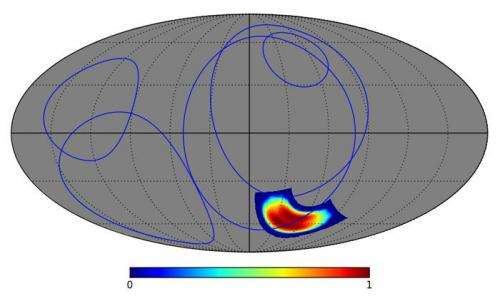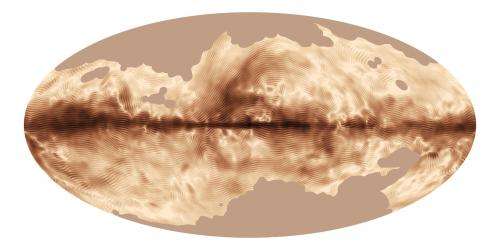Are the BICEP2 results invalid? Probably not

Recently rumors have been flying that the BICEP2 results regarding the cosmic inflationary period may be invalid. It all started with a post by Dan Falkowski on his blog Resonaances, where he claimed that the BICEP2 had misinterpreted some data, which rendered their results invalid, or at least questionable. The story then has sparked some heated debate.
So what's really going on?
For those who might not remember, BICEP2 is a project working to detect polarized light within the cosmic microwave background (CMB). Specifically they were looking for a type of polarization known as B-mode polarization. Detection of B-mode polarization is important because one mechanism for it is cosmic inflation in the early universe, which is exactly what BICEP2 claimed to have evidence of.
Part of the reason BICEP2 got so much press is because B-mode polarization is particularly difficult to detect. It is a small signal, and you have to filter through a great deal of observational data to be sure that your result is valid. But you also have to worry about other sources that look like B-mode polarization, and if you don't account for them properly, then you could get a "false positive." That's where this latest drama arises.
In general this challenge is sometimes called the foreground problem. Basically, the cosmic microwave background is the most distant light we can observe. All the galaxies, dust, interstellar plasma and our own galaxy is between us and the CMB. So to make sure that the data you gather is really from the CMB, you have to account for all the stuff in the way (the foreground). We have ways of doing this, but it is difficult. The big challenge is to account for everything.

Soon after the BICEP2 results, another team noted a foreground effect that could effect the BICEP2 results. It involves an effect known as radio loops, where dust particles trapped in interstellar magnetic fields can emit polarized light similar to B-mode polarization. How much of an effect this might have is unclear. Another project being done with the Planck satellite is also looking at this foreground effect, and has released some initial results (seen in the figure), but hasn't yet released the actual data yet.
Now it has come to light that BICEP2 did, in fact, take some of this foreground polarization into account, in part using results from Planck. But since the raw data hadn't been released, the team used data taken from a PDF slide of Planck results and basically reverse-engineered the Planck data. It is sometimes referred to as "data scraping", and it isn't ideal, but it works moderately well. Now there is some debate as to whether that slide presented the real foreground polarization or some averaged polarization. If it is the latter, then the BICEP2 results may have underestimated the foreground effect. Does this mean the BICEP2 results are completely invalid? Given what I've seen so far, I don't think it does. Keep in mind that the Planck foreground is one of several foreground effects that BICEP2 did account for. It could be a large error, but it could also be a rather minor one.
The important thing to keep in mind is that the BICEP2 paper is still undergoing peer review. Critical analysis of the paper is exactly what should happen, and is happening. This type review used to be confined to the ivory towers, but with social media it now happens in the open. This is how science is done. BICEP2 has made a bold claim, and now everyone gets to whack at them like a piñata.
The BICEP2 team stands by their work, and so we'll have to see whether it holds up to peer review. We'll also have to wait for the Planck team to release their results on B-mode polarization. Eventually the dust will settle and we'll have a much better handle on the results.
Source: Universe Today





















